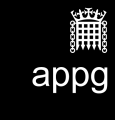Independent schools provide excellence, capacity, and innovation in our education system.
There is not a single-type of independent school. The Independent Schools Council (ISC) represents almost 1,400 schools with real diversity of provision. ISC schools vary significantly in size from having fewer than 50 pupils to over 2,400, although half of all schools have fewer than 300 pupils. Half of schools are non-selective and many are not for-profit. Over 17% of pupils at ISC schools have SEND.
You can find out more about the UK independent school sector on the ISC website.
Independent schools provide:
- Educational excellence, particularly in STEM subjects that are crucial to future productivity; and languages post-Brexit
- Economic value. Independent schools contribute £13.7bn annually to GDP, support 303,000 jobs and £4.1bn in tax revenue.
- Taxpayer savings. Independent schools save the state sector £3.5bn per year through parents (who pay taxes to support state education) not taking up state school places.
- Partnerships. The 2020 ISC census showed 85% of member schools had partnerships with their state counterparts – equating to more than 11,500 partnership projects including supporting pupils with university applications, careers advice and providing teaching in shortage subjects such as Modern Foreign Languages.
- Bursaries. ISC schools currently provide £455m in means tested bursaries and scholarships to pupils.
More information:
For further info, please see the links below to external sites:
- Independent schools working to support the national response to COVID-19, ISC publication
- The value of independent schools, ISC publication
- ISC Census
- School partnerships case study booklet
- The Impact of Independent Schools on the UK Economy (Oxford Economics report)
- Joint Understanding with the Department for Education on promoting school partnerships
- Baines Cutler VAT on school fees report
This is not an official website of the House of Commons or the House of Lords. It has not been approved by either House or its committees. All-Party Parliamentary Groups are informal groups of Members of both Houses with a common interest in particular issues. The views expressed in these web pages are those of the group.
